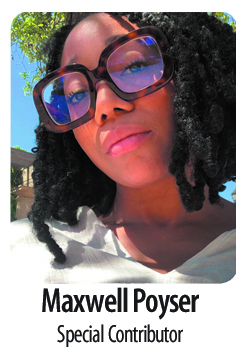Members of a new generation are learning to create themselves
 The quarter life crisis is coming earlier and earlier these days for the 25 and under crowd. However, unlike their older counterparts, the question up for debate isn’t about career choices or family planning but something far closer to home: gender identity.
The quarter life crisis is coming earlier and earlier these days for the 25 and under crowd. However, unlike their older counterparts, the question up for debate isn’t about career choices or family planning but something far closer to home: gender identity.
Over the past year, Gen Z-ers have taken to TikTok to discuss any, and every, major or minor life crisis, and the topic of gender and sexuality has not been forgotten in the minds of our youth. Born into the era of AI and “augmented reality,” Gen Z has used the principles of their time to inspire the realities of their own more personal dimensions.
Inspired by modern feminism and gender theory, gender has become more and more of an elusive construct in the minds of our youth. This surgency of public accessibility to modern theory has further opened the doors of gender fluidity and gender non-conformation, which trailblazers such as Marsha P. Johnson sacrificed their lives to crack open. And it is allowing younger and more tech-involved individuals a chance to step into the footsteps others have left for them, and in doing so further push the boundaries of what it means to be a young, queer individual in America.
The lines between what can and what cannot exist have become unimaginatively blurred in the modern age, and the same is true for the modern individual. In a day and age where reality can be altered and augmented in whatever way you please, so can the other aspects of our lived experience — especially when it comes to topics as fluid and individualist as gender expression and sexuality.
My own decision to further push the boundaries of my gender identity came at a time in my life when I was beginning to start over. All of the doors which I had opened in the past seemed to be simultaneously closing around me, and it was in that moment that I was able to accept and embrace the person who I wanted to become going forward. And my gender identity and expression very much played a part of that.
Image is not everything. But I will not and do not deny that, at a first glance, it is one of the only things — one of the only impressions — that people have of you. Clothes speak for you; your skin tone speaks for you; your hair texture speaks for you. And in the age of the internet, where your personality is displayed for others in 150 characters or less, labels speak for you. A label as simple as a set of pronouns or a more detailed account of your gender expression or sexuality can be a way for you to speak yourself into being within the world around you.
My pronouns, my labels will never be able to encompass the entirety of my being. But they are a starting point, one that is important to me and to a number of other young people in this world.
In 2021 there are few to no limitations to what the world can become for the individual; we are living in an age where reality is highly flexible — and the same has become true for gender identity.
Maxwell Poyser is the head of marketing and media at Fern Connections, an LGBTQIA- and ally-focused matchmaking company, and the voice behind the company’s blog, The Dating Dispatch.











